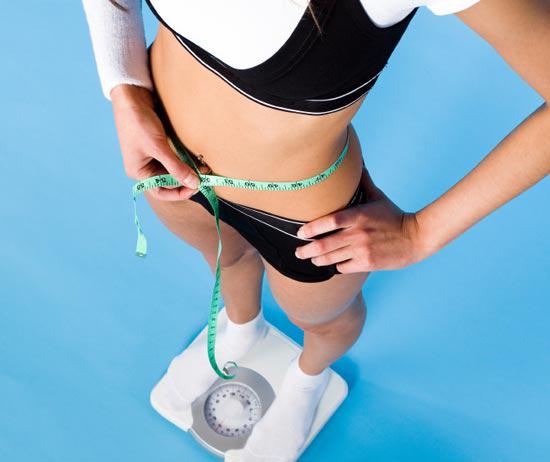
|
![]() DoctorHelps
|
Diabetes, Metabolism & Endocrinology
DoctorHelps
|
Diabetes, Metabolism & Endocrinology
For years I have felt that my metabolism was like Superman on crack. A calorie burner like no other!
My body has remained lean and muscular with ease, so I've always figured there was no way in the world that my metabolism was stagnant.
When you see a woman who is paper-thin or a man with a shredded six-pack, you might think that those physicalities are a perfect display of a healthy metabolism.
In some cases these people may have a stable metabolism. Most often, this isn't the case.
Your metabolism isn't measured by how quickly you can lose weight, the amount you can bench press, how fast you can run 800 meters, or how pleasant your farts smell (well maybe a little when it comes to your stink bombs).
You can gauge your metabolism by keeping this checklist in mind...
And finally, the best quantifiable indicator towards a healthy metabolism is...
A hearty body temperature and pulse. Your body temperature must be between 97.8 and 98.6, with a healthy pulse being between 75-85 bmp at rest.
Most people's body temperature falls between the 95 to 97 range, due to years of elevated adrenaline and cortisol, blood sugar imbalances, and food choices that provide little to no energy or heat on a cellular level.
I thought my metabolism was bulletproof for the longest time. When I started taking my temperature and pulse I was astonished. My temperature hovered around 96.2 quite often with a low pulse of 65 beats per minute.
According to Josh and Jeanne, "A normal pattern will lower in the morning, peak mid day, and decline again in the evening."
They share a wealth of knowledge in their courses. They explain that testing body temperature and pulse allows you to:
Josh says, "When body temperature and pulse are out of normal range, it's indicating a stress on the system, and a down-regulated metabolism. Stress on the system stimulates a slew of inflammatory hormones such as adrenaline, cortisol, prolactin, and estrogen."
Here are some key points that I also learned from them regarding what's occurring when you have low body temperature and pulse:
Using a digital thermometer and your own two fingers are the easiest and cheapest thyroid/adrenal/hormonal and overall metabolic test you can do.
Purchase a digital thermometer from Target or another local store, and begin practicing taking your oral temperature. You can take your temperature in other areas, but keep it simple and use the under the tongue method.
Take your temperature three times per day max, three days in a row per week.
Your first reading should be right upon waking, as you lay peacefully in bed. The next reading should be twenty minutes after breakfast, and then a third time will be twenty minutes after lunch or another meal of your choice.
Measure your pulse by using your fingers, not your thumb, as the thumb has its own pulse. Choose either your carotid pulse (neck) or your radial pulse (wrist).
A pulse higher than 85 beats per minute can be a finer pointing towards your adrenaline and cortisol being very high and out of balance. Keep in mind that regulating pulse takes longer than regulating body temperature, so be patient when it comes to this measurement of your metabolism.
Take both of these tests together as it will make things easier. Jot your results down on your phone, computer, or a note pad.
You might be scratching your head thinking that your pulse should be a lot lower than 75-85 beats per minute. I like what Kate Deering (a fellow health practitioner) discusses on her blog about pulse...
"Broda Barnes MD and Dr. Ray Peat both state that an optimal pulse is between 75 and 85 beats per minute. Huh? I thought a low pulse was better? Don't most athletes have a pulse rate below 60 beats per minute? I think super-fit Lance Armstrong has a pulse of like 45 beats per minute. Yes, Lance is fit, and yes he had a very low pulse rate. Yet, let's remember that he had testicular cancer at the ripe age of 25. We must remember -- fit does not equal healthy. A healthy metabolism induces a higher pulse rate and body temperature -- two things you will frequently NOT see in endurance athletes."
There are many biochemical reactions taking place in your body throughout the day, and it's your duty to keep your metabolism running strong.
On a nerdy science level, your cells need to be nourished by the right carbohydrates, proteins, and fats.
When your cells receive the correct nutrients, they "breathe" stress free and produce heat and energy in an efficient way.
When your cells are breathing properly and producing heat, your body temperature and pulse reflects this and your metabolism starts kicking ass.
I can recall when my temperature and pulse started elevating and regulating. My hands and feet weren't freezing all the time like before, I stopped waking up in the middle of the night, and my energy levels became drastically different.
Remember, having a healthy and fast paced metabolism is not about getting chiseled abs, having the lowest body fat on the block, or feeling like Superman on crack (well maybe a little bit).
Pay attention to the foods that boost your body temperature and pulse and which ones act as a barricade.
As your metabolism begins to shift for the better, you will begin to notice what it feels like to have ample energy and the newfound feeling of being fuzzy and warm even on a chilly day. Enjoy the journey of reshaping your metabolism!
Leave a Comment